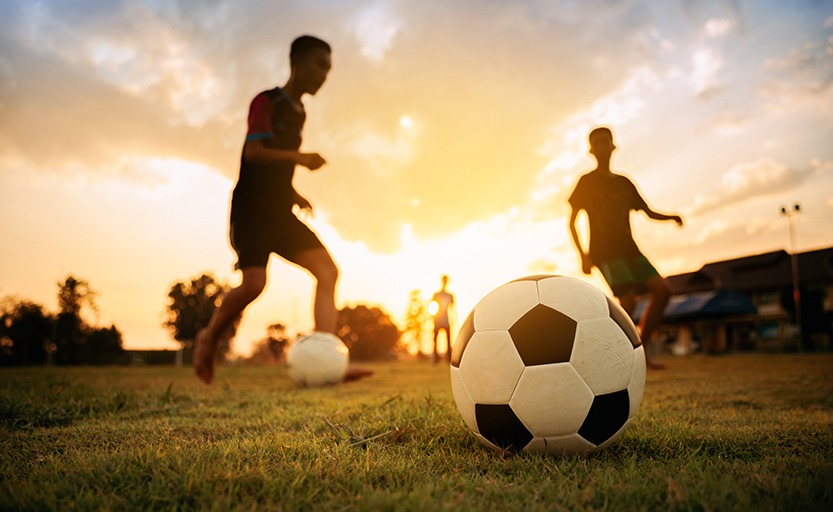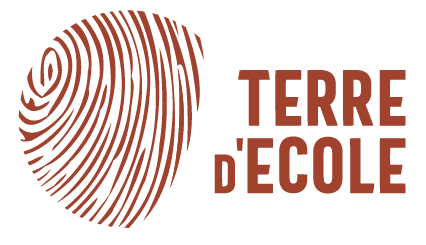Program
Innovative Specific Training
The teaching follows the national school curriculum as proposed by the National Education, and adds an ethnobotanical program, inviting children to better understand local ancestral traditions, especially in terms of plant cultivation, and an excellence sports program offered within the Sports Academy.
An Academic Program
Aligned with the national school curriculum, it schedules timetables to incorporate the specific pedagogical module. After obtaining the state-recognized baccalaureate, students can enroll in a university of their choice in their home country or abroad.
The teachers at the Terre d’École establishment are selected from the national teaching staff. They are trained in the philosophy and values of the Terre d’École program.

A Sustainable Development Program
Children learn to identify local needs, understand plant development cycles, their environment, and factors that may affect harvests, particularly through practical land cultivation activities around the Terre d’École establishment.
The cultivation methods they employ are those traditionally used by their parents, which were environmentally friendly. Thus, the link between generations is maintained in respect of traditions. Researchers accompany teachers throughout the year to give meaning to these practices.
In correlation with on-site training provided by young French-speaking, African, or European researchers, supervised by Professor Florence Brunois (CNRS ethnologist, Laboratory of Social Anthropology, Anthropology of Nature Chair at the Collège de France), teachers implement the pedagogical program in 5 essential phases:
- Assessment of local food needs
- Knowledge of local flora
- Interactions between plant needs and the natural environment
- Organization of vegetable garden crops
- Valorization of results / sharing experiences
A Sports Academy
The Sports Academy at the Christophe de Margerie campus in Kintélé is based on the creation of a space adjacent to the school dedicated to sports practice. It caters to both students and external individuals, enhancing interaction and synergy with the local community, offering quality facilities and supervised sports practice.
Our ambition is not to discover future talents but to support the development of our students and other children in the locality, to raise awareness of the benefits of regular sports practice, and to offer them a new source of fulfillment.

By creating this Sports Excellence Center, we also aim to organize and offer sports activities outside of school hours, creating a “club” atmosphere, fostering exchanges and socialization, providing a true meeting place for the community.
This center combines 3 major characteristics:
- Profiles: providing our students with sports practice in an excellent environment
- Diversity: diversity of proposed practices and target audiences (local clubs, associations, communities)
- Quality: quality of facilities, architecture, and space treatment
ACTIVITIES:
Football, basketball, handball, volleyball, paddle, judo and karate, general physical activities, tennis.
A Pedagogy Strongly Integrating Oral Tradition
The Gondwana Tales
“Kitoko Engumba is a clean and crystalline city, it is the city of the Bayembis, the one everyone dreams of living in because it is so clean and pretty. Here, everyone is happy, the trees and the people get along wonderfully, until one day… The Great Casselézard accompanied by the witch Kozanzala decides to suffocate the city under its waste… Fortunately, Gondwana has more than one trick up its sleeve, it will know how to thwart all the misdeeds of the two polluters!”
Gondwana is the name of the original continent that once encompassed all lands before the drift of tectonic plates. The Gondwana collection revolves around the themes of “Nature”, “Solidarity”, and “Culture”. Gondwana is the guardian of the forest. He and his friends, Mabele, the guardian of the Earth, Moto, the guardian of Fire, Mopepe, the guardian of Air, and Mai, the guardian of Water, are part of a people of small African geniuses, the “Bayembi”, who know nature and the planet like the back of their hand, more than anyone else will ever know it. This small people of geniuses works day in and day out to preserve it.
The stories create interactivity, and the young reader feels that the preservation of animals, plants, and humans in the real universe now depends as much on him as on this “magical” universe.
The emphasis is on what to do and what not to do, and nature is evoked by giving the child, on the one hand, an optimistic vision of the future, and on the other hand, the impression that he is the most important actor in his own destiny and that of the planet.”
Based on several stories written and addressing major sustainable development issues in Africa (water, forest, urban development, biodiversity, food self-sufficiency…), these tales aim to raise children’s awareness of environmental issues, mobilizing an ancestral communication vector in Africa, perfectly suited to their culture. A pedagogical guide for teachers, The Gondwana Pedagogical Guide on the Environment, was also published in 2011.



